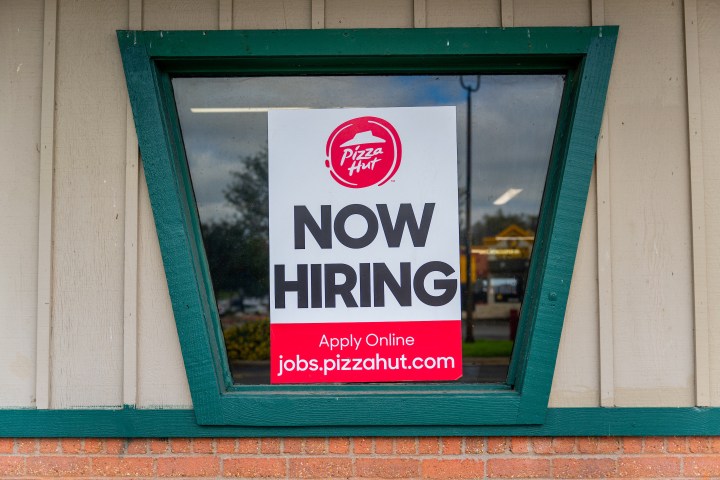
Signs point to a labor market that’s cooling, but not cold
Signs point to a labor market that’s cooling, but not cold

The Federal Reserve will be looking way hard at the job market. Workers and companies will be too, to see how fast jobs and wages are still growing and how much we consumers can keep on spending as a result.
Here’s what we know so far, heading into Friday’s February jobs report. Payroll processor ADP reported Wednesday that private employers added 140,000 jobs in February, just about what economists were expecting. Pay gains for those who stayed in their jobs, meanwhile, slowed to the lowest pace since mid-2021.
And the Labor Department reported that job openings in January didn’t budge — though they were down a good deal from the middle of last year. The rate at which people quit their jobs to find new ones fell and is now below what it was before the pandemic sent people job scrambling.
We started to see a slowdown in the middle of last year — as post-pandemic hiring faded and high interest rates started to bite.
But in December and January, the economy added nearly 700,000 new jobs. Why such a robust performance? Who knows — maybe the weather. In any case, economists don’t expect the trend to continue.
Nick Bunker, director of North American research at job site Indeed, which is a Marketplace underwriter, said most of the evidence points to “a gradual cooldown in the U.S. labor market.”
Now, that doesn’t mean it’s getting frigid. Job postings are still higher than pre-pandemic.
Bunker pointed out, though, that “compared to, say, two years ago, employers are facing less competition when they’re trying to hire workers, so there’s fewer job opportunities right now and there’s less wage growth.”
Meanwhile, consumers are a bit more on edge these days.
“We did see an uptick in the percentage saying they were concerned about the job environment,” said The Conference Board’s chief economist, Dana Peterson, as she discussed the group’s latest pulse-taking of consumers.
“That could reflect the fact that real incomes may not be rising as quickly, so people are thinking to themselves, ‘Well, I definitely need to work.’ But then, they’re also hearing bad news about some big layoffs among a variety of companies,” she said.
The Conference Board also surveys company CEOs. Peterson said their plans for employment “shrinkage” in the coming year are a bit worrying.
“One in 5 CEOs say they’re looking to shed workers. That’s a warning signal — especially since most of last year they were holding on to workers. I think there’s something in the air from CEOs that consumers may be picking up on.”
So far, though, layoffs aren’t a big concern, said Robert Frick at Navy Federal Credit Union.
“Unemployment claims are still really low, and even long-term claims aren’t very high. So what’s happening? How can all these people be getting laid off, and yet all these other numbers look just fine?” he said.
The answer, Frick said, is they’re getting new jobs pretty quickly.
There’s a lot happening in the world. Through it all, Marketplace is here for you.
You rely on Marketplace to break down the world’s events and tell you how it affects you in a fact-based, approachable way. We rely on your financial support to keep making that possible.
Your donation today powers the independent journalism that you rely on. For just $5/month, you can help sustain Marketplace so we can keep reporting on the things that matter to you.

















